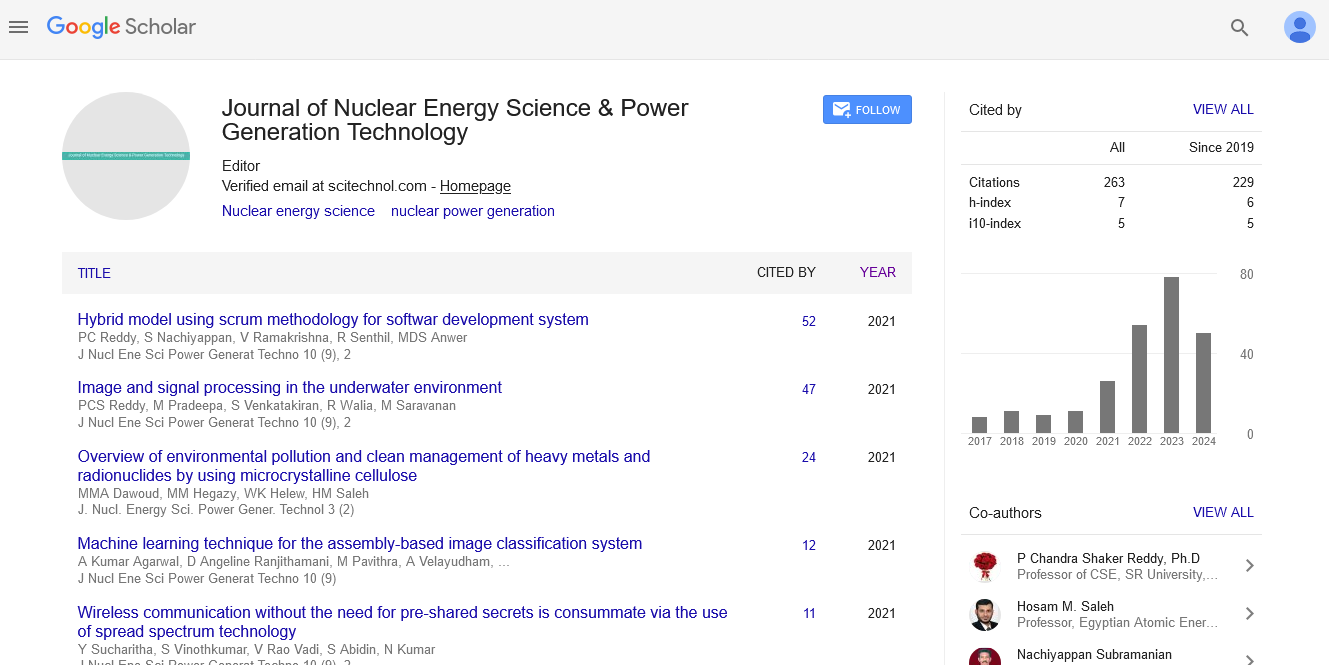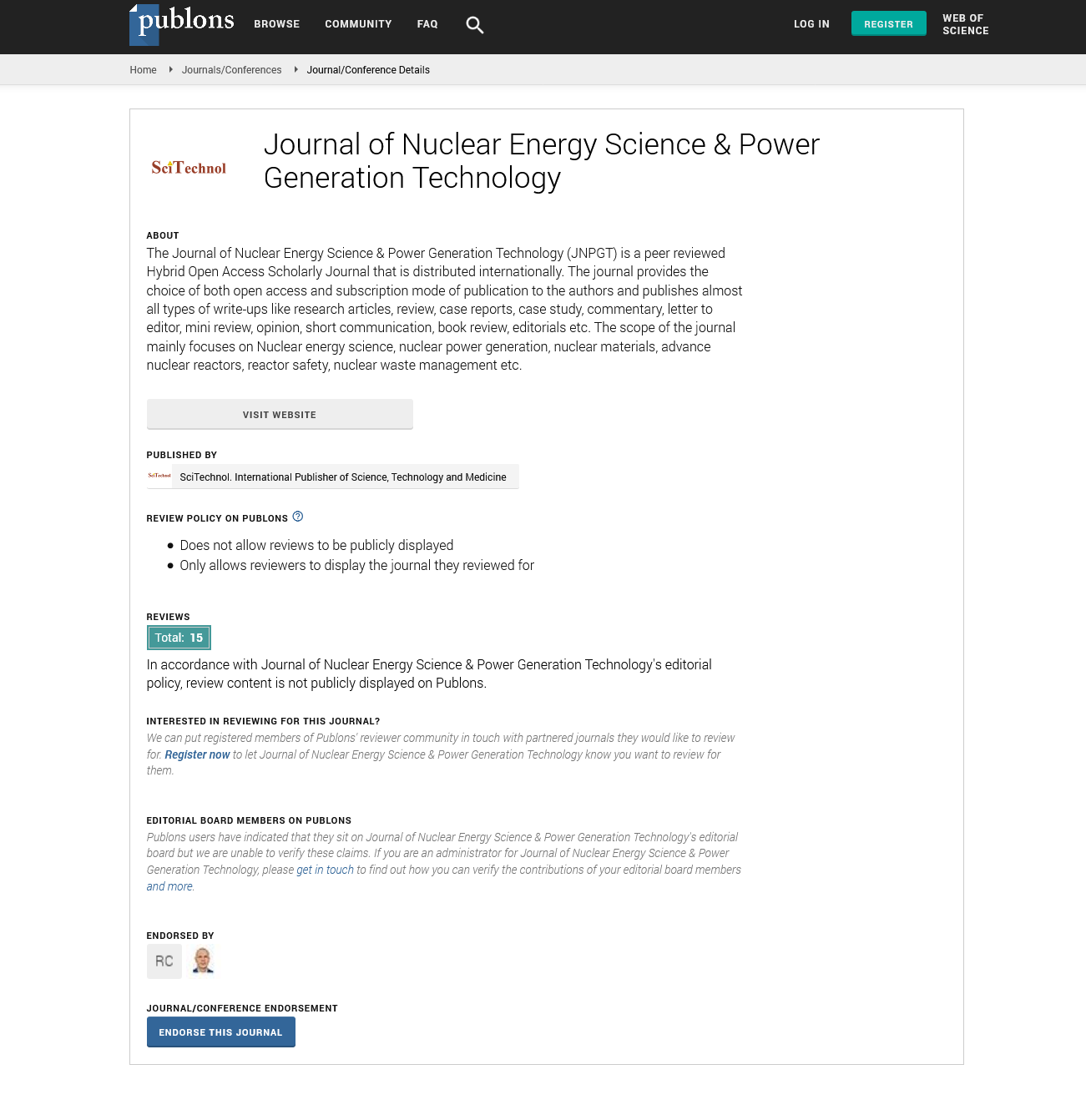Dry reforming for methanol production
Grazia Leonzio
University of L’Aquila, Italy
: J Nucl Ene Sci Power Generat Technol
Abstract
Methanol is one of the most important chemical materials produced today due to the wide variety of processes in which it is used. Generally, methanol is produced by hydrogenation of CO2, allowing the reduction of CO2 emissions. In the last year, also dry reforming reaction has received the attention by researchers. A comparison between dry reforming and hydrogenation reaction for methanol production is carried out in this research, using the same amount of CO2 in the feed. A simulation with ChemCad software is developed to this purpose. Results, reported in table 1, show that dry reforming reaction could ensure a higher CO2 reduction but a lower methanol production. The process works at high temperature (800 °C-1000 °C) and problems related to catalysts are present. A new catalyst should be found also to improve the methanol production. Different sources of methane are used: coke oven gas, natural gas, biogas (landfills gas recovery plants), biogas (grass and maize), biogas (municipal solid waste treatment plant), biogas (sludge and industrial bio-waste). Coke oven gas allows to have a higher methanol production.
Biography
Grazia Leonzio is a PhD student from L’Aquila University. She published several articles and participated to several international and national congresses about environmental and energy aspect of chemical processes. She wrote an article about waste management in Italian regions and published in Columbia University web-side. She participated to M.U.N conferences and she is a member of several associations: A.I.D.I.C. (Italian Association of Chemical Engineering), S.C.I. (Italian Chemical Society), I.S.S.N.A.F. (Italian Scientists and Scholars in North America), E.C.A.S. (European Commission Authentication Service). She is a referee of several journals.
E-mail: grazia.leonzio@virgilio.it
 Spanish
Spanish  Chinese
Chinese  Russian
Russian  German
German  French
French  Japanese
Japanese  Portuguese
Portuguese  Hindi
Hindi 

